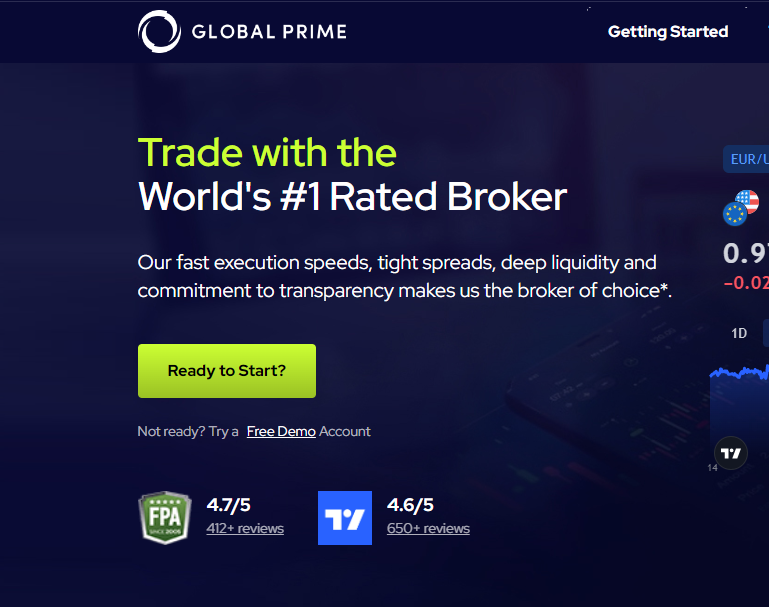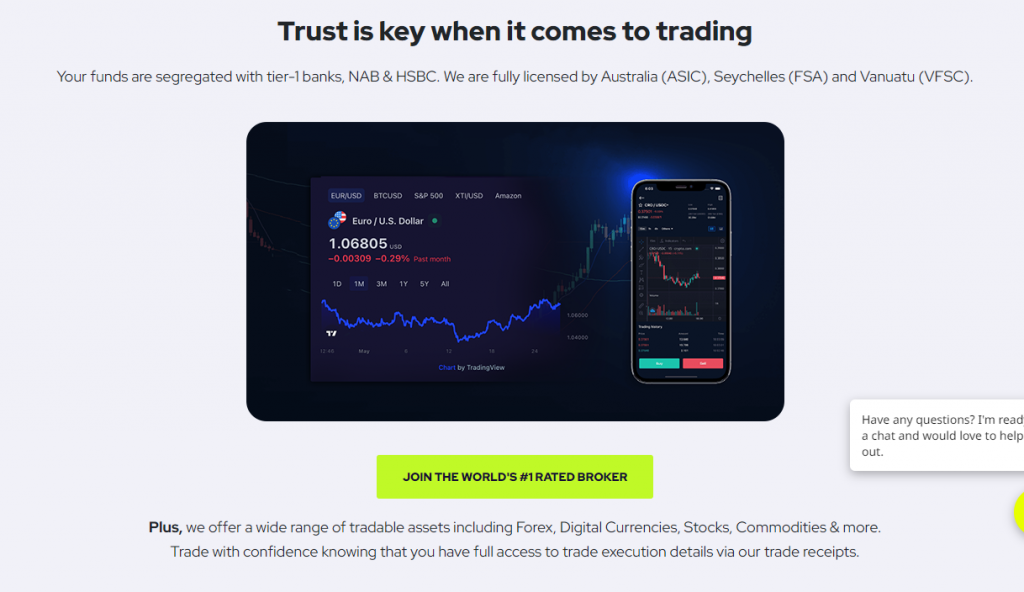An index is essentially a statistical measure that tracks the performance of a specific set of assets. Indices can cover a wide range of assets, including stocks, bonds, commodities, or even specific sectors or regions.
In this blog post, we will delve into the world of indices, exploring their meaning, their role in financial markets, and the various types that exist. We will uncover how indices are calculated, the methodologies behind their composition, the factors that influence their movements and 20 frequently asked questions on indices in the financial markets.
What Are Indices?
Indices play a crucial role in representing the performance of specific markets, sectors, or regions. An index is a statistical measure that tracks the performance of a group of assets, such as stocks, bonds, or commodities, within a particular market. It serves as a benchmark to gauge the overall health and trends of a specific segment of the financial market.
Commonly used indices include the S&P 500, Dow Jones Industrial Average, and NASDAQ Composite in the United States, as well as global indices like the MSCI World Index and regional ones such as the FTSE 100 in the UK and Nikkei 225 in Japan.
The Role of Indices in the Financial Markets
1. Measurement of Market Performance
Indices serve as indicators of the overall performance of a specific market or economy. They track the collective performance of a group of stocks, representing a particular market segment or the entire market. By monitoring indices, investors and analysts can gauge the overall market trends, assess market sentiment, and make informed investment decisions.
2. Sector and Industry Analysis
Sector-specific indices track the performance of specific industries or sectors within the market. These indices provide valuable insights into the health and growth potential of different sectors, allowing investors to identify investment opportunities and manage sector-specific risks. Sector indices are particularly useful for conducting sector analysis and making sector-specific investment decisions.
3. Portfolio Diversification
Indices facilitate portfolio diversification by providing exposure to a broad range of stocks. By investing in index funds or exchange-traded funds (ETFs) that track specific indices, investors can spread their risk across multiple stocks and sectors. This helps reduce the impact of individual stock volatility on the overall portfolio performance and enhances risk management.
4. Investment Products and Derivatives
Indices serve as the basis for various investment products and derivatives. Exchange-traded funds (ETFs) are designed to track the performance of specific indices, allowing investors to gain exposure to a diversified portfolio of stocks with a single investment. Additionally, index futures and options contracts are based on the performance of specific indices, providing opportunities for hedging, speculation, and risk management.
5. Market Analysis and Research
Indices play a crucial role in market analysis and research. Technical analysts use indices to identify patterns, trends, and support/resistance levels, helping them make trading decisions. Fundamental analysts consider indices to assess the overall market conditions and macroeconomic factors that can impact individual stocks and sectors. By analyzing indices, investors can gain insights into market dynamics and make informed investment choices.
Types of Indices in the Market
1. Broad Market Indices
– These indices represent the overall performance of a broad segment of the market, typically a specific stock exchange or national economy.
– Examples include the S&P 500 in the United States, which tracks 500 large-cap companies, and the FTSE 100 in the UK, representing the 100 largest companies listed on the London Stock Exchange.
2. Sector-specific Indices
– Sector indices focus on a particular industry or sector within the economy, such as technology, healthcare, finance, or energy.
– They provide insight into the performance of specific industries, helping investors gauge trends and opportunities within those sectors.
– Examples include the Nasdaq Biotechnology Index (NBI), which tracks biotech companies, and the S&P 500 Financials Index, representing financial sector companies in the S&P 500.
3. Global and Regional Indices
– Global indices cover multiple markets worldwide, giving investors an overview of global market performance.
– Regional indices focus on specific regions or continents, allowing investors to assess the performance of particular geographic areas.
– Examples of global indices include the MSCI World Index, which covers developed markets globally, and the MSCI Emerging Markets Index, which represents emerging economies.
– Regional indices may include the Euro Stoxx 50 in the Eurozone, the Nikkei 225 in Japan, or the Hang Seng Index in Hong Kong.
4. Fixed-Income Indices
– Unlike equity indices, fixed-income indices track the performance of various types of bonds and debt instruments.
– These indices help investors understand the overall performance and trends in the bond market.
– Examples include the Bloomberg Barclays U.S. Aggregate Bond Index, which represents a broad range of U.S. investment-grade bonds.
5. Commodity Indices
– Commodity indices monitor the performance of various commodities like gold, oil, agricultural products, and metals.
– They are essential for investors interested in commodity markets or seeking diversification beyond traditional assets.
– Examples include the S&P GSCI (Goldman Sachs Commodity Index), which tracks a diverse range of commodities, and the Bloomberg Commodity Index, which includes 23 different commodities.
6. Customized and Strategy Indices
– Some indices are designed for specific investment strategies or based on specific criteria, such as environmental, social, and governance (ESG) factors.
– Customized indices may be created for specific clients or investment products.
– Examples include the Dow Jones Sustainability Indices, which focus on companies with strong sustainability practices, and smart beta indices that use alternative weighting methodologies.
Prominent Stock Market Indices
Prominent stock market indices represent different segments of the global financial markets and provide valuable insights into the performance of specific markets, sectors, or regions. Here are some of them:
1. S&P 500: The S&P 500 is a widely followed index that represents the performance of 500 large-cap companies listed on U.S. stock exchanges. It covers a broad range of sectors and is often used as a barometer for the overall health of the U.S. stock market.
2. Dow Jones Industrial Average (DJIA): The Dow Jones Industrial Average is an index that tracks the stock prices of 30 large, publicly traded companies in the United States. It is one of the oldest and most recognized indices globally, often considered a reflection of the broader U.S. economy.
3. Nasdaq Composite: The Nasdaq Composite is an index that includes all the common stocks and similar securities listed on the Nasdaq Stock Market. It is known for its focus on technology and growth-oriented companies, making it a key indicator of the performance of the tech sector.
4. FTSE 100: The FTSE 100 is an index that represents the 100 largest companies listed on the London Stock Exchange (LSE) based on market capitalization. It provides insights into the performance of the UK stock market and covers various sectors, including finance, energy, and consumer goods.
5. Nikkei 225: The Nikkei 225 is a stock market index that tracks the performance of 225 large, publicly traded companies listed on the Tokyo Stock Exchange. It is a key indicator of the Japanese stock market and includes companies from various sectors, such as automotive, electronics, and finance.
6. DAX: The DAX is the primary stock market index in Germany, representing the performance of the 30 largest and most actively traded companies listed on the Frankfurt Stock Exchange. It includes companies from various sectors, such as automotive, pharmaceuticals, and technology.
7. CAC 40: The CAC 40 is the benchmark stock market index in France, comprising the 40 largest and most actively traded companies listed on the Euronext Paris exchange. It covers a wide range of sectors, including banking, energy, and luxury goods.
8. Hang Seng Index: The Hang Seng Index is the leading stock market index in Hong Kong, tracking the performance of the 50 largest and most liquid companies listed on the Hong Kong Stock Exchange. It represents various sectors, including finance, property, and technology.
9. Shanghai Composite Index: The Shanghai Composite Index is a major stock market index in China, reflecting the performance of all A-shares and B-shares listed on the Shanghai Stock Exchange. It covers a wide range of sectors and is closely watched as an indicator of the Chinese stock market.
10. S&P/ASX 200: The S&P/ASX 200 is the primary stock market index in Australia, representing the performance of the top 200 companies listed on the Australian Securities Exchange (ASX). It covers various sectors, including mining, banking, and healthcare.
11. Nifty 50: The Nifty 50 is the benchmark stock market index in India, comprising the 50 largest and most liquid companies listed on the National Stock Exchange of India. It represents various sectors, including banking, IT, and energy.
Factors Affecting Indices
Indices are influenced by various factors that can cause them to move up or down. Understanding these factors is essential for investors and traders to make informed decisions. Here are some of the key factors that affect indices:
1. Economic Indicators: Economic data plays a significant role in influencing indices. Indicators such as Gross Domestic Product (GDP) growth, unemployment rate, consumer price index (CPI), and manufacturing data provide insights into the health of the economy and its potential for growth or contraction.
2. Corporate Earnings Reports: The financial performance of companies within an index directly impacts its value. Positive earnings reports from prominent companies can drive the index higher, while disappointing results can lead to declines.
3. Interest Rates and Central Bank Policies: Central banks’ decisions on interest rates and monetary policies can have a substantial impact on indices. Lower interest rates generally stimulate economic growth and can lead to higher stock prices, while higher rates may have the opposite effect.
4. Geopolitical Events: Political and geopolitical developments can create uncertainty in financial markets and affect investor sentiment. Events such as elections, trade wars, geopolitical tensions, and policy changes can lead to market volatility and impact indices.
5. Market Sentiment: Investor sentiment and emotions play a significant role in driving market movements. Positive news and optimism can boost indices, while negative news or fear can lead to declines.
6. Global Events and Natural Disasters: Events such as natural disasters, pandemics, or terrorist attacks can disrupt economies and financial markets, causing fluctuations in indices.
7. Currency Fluctuations: For global indices, currency fluctuations can have an impact. A weaker domestic currency may boost exports but could also lead to imported inflation, influencing the overall economy and the performance of the index.
8. Commodity Prices: Indices that are closely tied to commodity sectors may be affected by changes in commodity prices. For example, energy indices may be influenced by fluctuations in oil prices.
9. Monetary Policy Decisions: Actions taken by central banks to control the money supply and regulate inflation can have significant effects on indices.
10. Technological Advancements: Technological developments and innovations can impact industries and companies within an index, leading to shifts in the index’s performance.
11. Trade Relations and Tariffs: Trade agreements, tariffs, and trade disputes between countries can impact industries and companies involved in international trade, potentially affecting the performance of corresponding indices.
12. Market Liquidity: The liquidity of underlying assets in an index can impact its performance. A lack of liquidity in certain stocks may lead to wider bid-ask spreads and increased volatility.
Where to Check Indices Market Data
There are several reliable sources where you can check indices market data. Here are some popular options:
1. Financial News Websites
Websites like Bloomberg, CNBC, Reuters, and Yahoo Finance provide real-time market data, including indices. They offer comprehensive coverage of global markets, economic news, and analysis.
2. Stock Exchange Websites
Most stock exchanges have their own websites where they provide real-time data on the indices they track. For example, the New York Stock Exchange (NYSE) and Nasdaq provide up-to-date information on the indices listed on their exchanges.
3. Financial Data Providers
Companies like S&P Dow Jones Indices, MSCI, and FTSE Russell are renowned providers of financial data and indices. They offer detailed information on various indices, including historical data, constituent stocks, and performance metrics.
4. Brokerage Platforms
Many online brokerage platforms, such as E*TRADE, TD Ameritrade, and Interactive Brokers, provide access to real-time market data, including indices. These platforms often offer customizable watchlists, charts, and analysis tools to track and analyze indices.
5. Mobile Apps
Mobile applications like Investing.com, Stocktwits, and Yahoo Finance have dedicated sections for indices. These apps provide real-time data, news, and customizable alerts for indices, allowing you to stay updated on the go.
Frequently Asked Questions (FAQs) On Indices in the Financial Markets
1. What is an index in the financial markets?
An index is a tool used to measure the performance of a specific market, sector, or region. It represents a group of stocks or other assets and provides a benchmark for investors to track the overall market or specific segments.
2. How are indices used to measure market performance?
Indices are used as a reference point to assess how well the market or a specific sector is performing. By tracking the movement of an index, investors can gauge whether the market is going up or down and compare their own investment returns to the overall market.
3. What are the different types of indices in the financial markets?
There are various types of indices, including broad market indices that represent the overall market, sector-specific indices that focus on specific industries, regional indices that cover specific regions or countries, fixed-income indices that track bonds, commodity indices that monitor the performance of commodities, and customized indices designed for specific investment strategies.
4. How do broad market indices differ from sector-specific indices?
Broad market indices, like the S&P 500, represent the overall performance of a wide range of companies across different sectors. Sector-specific indices, on the other hand, focus on the performance of specific industries or sectors, such as technology or healthcare. They provide insights into the performance of those specific sectors.
5. What factors can influence the movement of indices?
Several factors can impact the movement of indices, including company earnings and financial performance, economic conditions like GDP growth and interest rates, market sentiment and investor confidence, government policies and regulations, global events and geopolitical factors, and currency exchange rates.
6. How can investors use indices for portfolio diversification?
Investors can use indices to diversify their portfolios by investing in index funds or exchange-traded funds (ETFs) that track specific indices. This allows them to gain exposure to a broad range of stocks or assets, reducing the risk associated with investing in individual stocks.
7. What are the benefits of tracking global or regional indices?
Tracking global or regional indices provides investors with insights into the performance of different markets and regions. It allows them to assess the opportunities and risks associated with investing in specific geographic areas and make informed investment decisions.
8. Can individual investors trade indices directly?
Individual investors cannot trade indices directly. However, they can trade derivative products based on indices, such as index futures and options. Additionally, they can invest in index funds or ETFs that track specific indices.
9. What are index funds and how do they relate to indices?
Index funds are investment funds that aim to replicate the performance of a specific index. They hold a portfolio of stocks or assets that mirror the composition of the index. By investing in index funds, investors can gain exposure to the performance of the underlying index.
10. How can I access real-time data for indices in the financial markets?
Real-time data for indices can be accessed through financial news websites, stock exchange websites, financial data providers, brokerage platforms, and mobile apps. These sources provide up-to-date information on index prices, constituent stocks, and other relevant data.
11. Are there any risks associated with investing in index-based products?
Like any investment, there are risks associated with investing in index-based products. The value of these products can fluctuate based on the performance of the underlying index. Additionally, market and economic factors can impact the performance of the index and, consequently, the investment.
12. How do indices play a role in asset allocation strategies?
Indices play a role in asset allocation strategies by providing a reference point for diversifying investments across different asset classes. Investors can allocate their assets based on the performance and characteristics of various indices, aiming to achieve a balanced and diversified portfolio.
13. Can indices be used as benchmarks for evaluating investment performance?
Yes, indices are commonly used as benchmarks for evaluating investment performance. Investors compare their own investment returns to the performance of relevant indices to assess how well their investments have performed relative to the market or specific sectors.
14. What are the key considerations for beginners when using indices in their investment strategy?
Beginners should consider their investment goals, risk tolerance, and time horizon when using indices in their investment strategy. They should also understand the composition and methodology of the index they are tracking and conduct thorough research before making investment decisions.
15. What is the difference between market-cap-weighted and equal-weighted indices?
Market-cap-weighted indices give more weight to larger companies based on their market capitalization, while equal-weighted indices assign equal weight to all companies in the index. Market-cap-weighted indices reflect the performance of the overall market, while equal-weighted indices provide a more balanced representation of all companies in the index.
16. How do changes in index composition or methodology affect the performance of an index?
Changes in index composition or methodology can impact the performance of an index. For example, if a company is added or removed from an index, it can affect the index’s performance. Similarly, changes in the methodology used to calculate the index can alter its performance characteristics.
17. Are there any regulations or governing bodies that oversee the creation and maintenance of indices?
There are no specific regulations or governing bodies that oversee the creation and maintenance of indices. However, index providers and financial institutions that create and manage indices follow industry best practices and adhere to transparency and accuracy standards to ensure the integrity of the indices they offer.
18. How can I use indices to make informed investment decisions?
Indices can provide valuable information for making informed investment decisions. By tracking the performance of relevant indices, traders can gain insights into market trends, sector performance, and overall market sentiment. This information can help them identify potential investment opportunities, assess the performance of their existing investments, and make strategic decisions based on market conditions.
19. Can I invest directly in an index?
No, individual traders and investors cannot invest directly in an index. However, they can invest in index funds or ETFs that track specific indices. These investment vehicles allow investors to gain exposure to the performance of the underlying index and participate in its returns.
20. Are there any limitations or drawbacks to using indices in investment decisions?
While indices provide valuable information, there are some limitations to consider. Indices represent a broad market or sector, so they may not capture the performance of individual stocks or assets within the index. Additionally, indices are backwards-looking and may not predict future market movements accurately.
Join Our Bi-Weekly Webinars and Amplify Your Trading Success!
The aim of this webinar is simple – to help traders like you enhance their skills and achieve greater success in the markets. Our bi-weekly webinars are designed to provide valuable insights and strategies across various instruments: Forex, stocks, commodities, indices, cryptos, and binary options.
By attending our webinars, you’ll enjoy:
- Practical strategies for profitable trading
- In-depth market analysis and trends
- Expert guidance from an experienced trader
- One-hour sessions, twice a week







